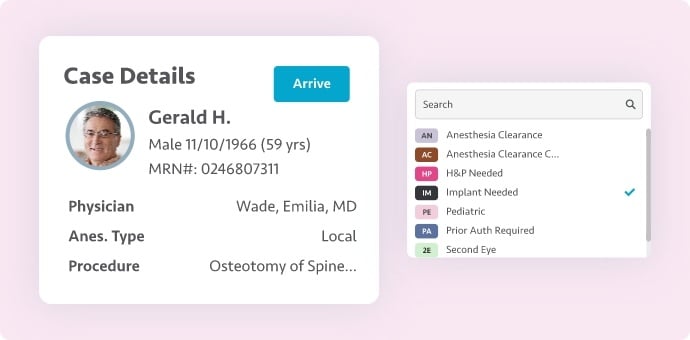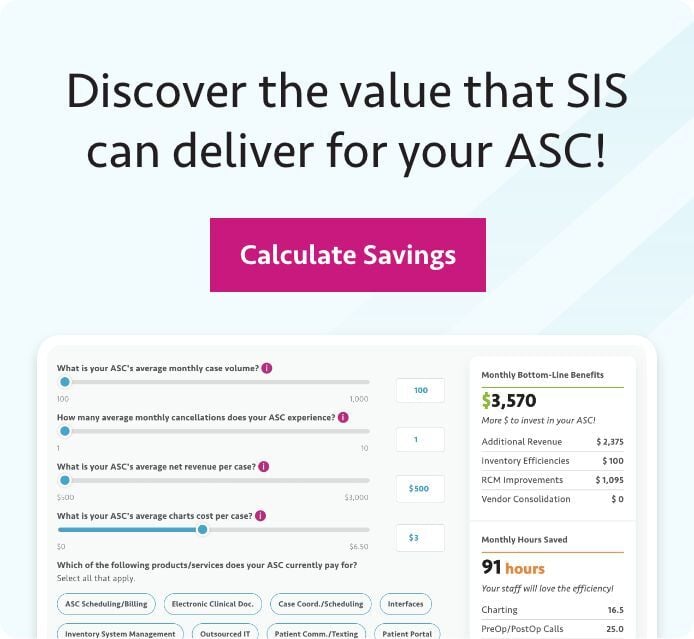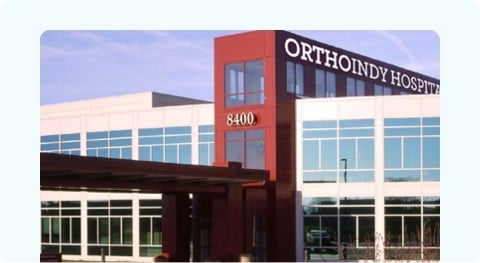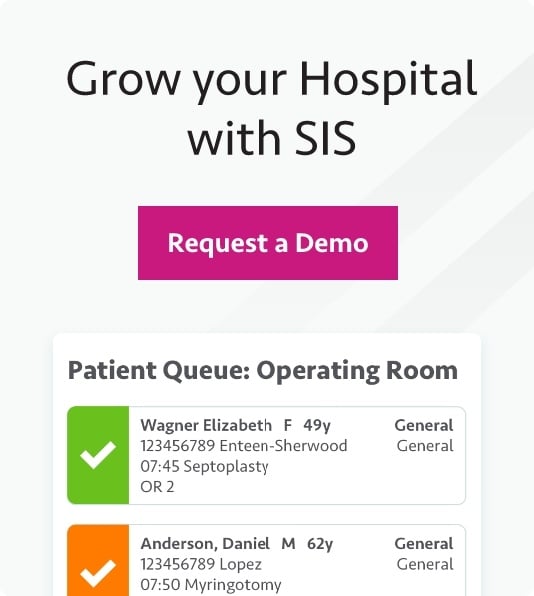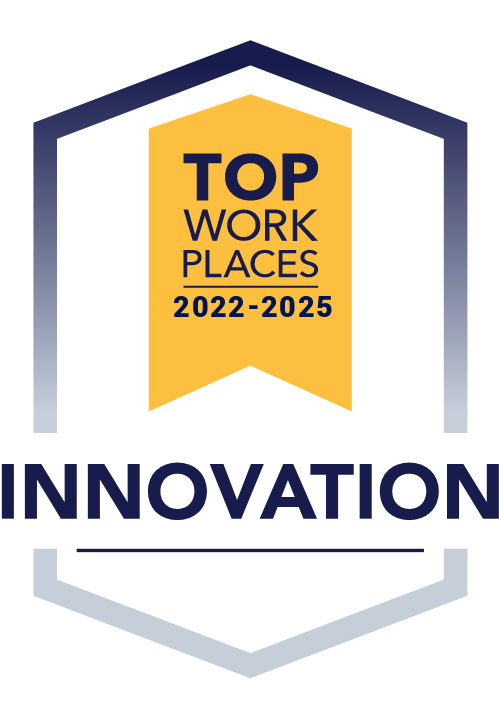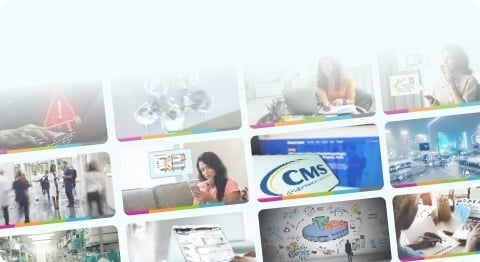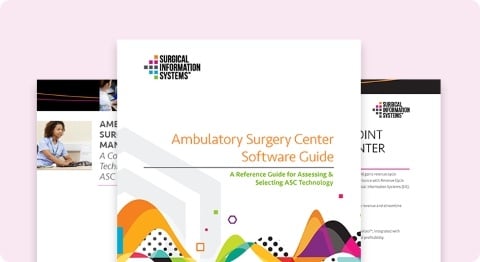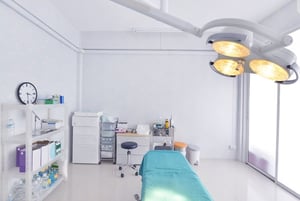Modern ASC technology can be a powerful ally in the battle against staff burnout and retention by helping to streamline workflows, reduce administrative burdens, and improve overall operational efficiency.
Ambulatory surgery centers (ASCs) are built for efficiency. The consistency and speed with which cases can be handled is what sets them apart from, and allows them to compete with, larger healthcare providers. While this routine setting supports procedure safety, over time, the predictability can become underwhelming for individual staff members, and the administrative burdens that come with manual, redundant, and paper-based tasks can lead to professional burnout and issues with retention.
By prioritizing staff well-being and implementing strategies to mitigate burnout, ASCs can foster a healthier and more engaged workforce, resulting in improved patient outcomes, higher patient satisfaction, and reduced healthcare costs. Furthermore, addressing staff burnout enhances operational efficiency by helping to reduce turnover rates, minimize disruptions in staffing, and promote a positive work environment that encourages collaboration and productivity among ASC staff.
But how do you address staff burnout in the first place?
Using technology to help ease ASC staff burnout
If you’ve spent any time researching how to prevent or decrease burnout, then you’ve seen the array of strategies: improving work schedules, adopting mindfulness practices, setting boundaries, switching up your daily routine, etc. These are great tips, but they don’t do much to combat it while on the job, as you’re juggling competing stressors.
There is one change that can really make a difference, though: Technology.
Adopting ASC technology that reduces the administrative and documentation demands on staff, as well as the cognitive burdens they face, is a great way to take a proactive approach to workplace fatigue prevention. Today’s ASC software prioritizes the needs of the users and includes designs and features that cater to all surgery center stakeholders – patients, physicians, anesthesia providers, nurses, and staff.
Here are 5 benefits of ASC technology that help reduce staff burnout:
Streamlined Workflows & Configurability
One of the highlights of modern technology is how interoperable the software is, reducing the need to manually input information and allowing staff to go about their day in a streamlined manner. From scheduling to case costing, information flows seamlessly from surgeons’ offices to ASC and ASC to patients, all the way through to billing. Automatic reminders are triggered for patients and staff alike when tasks are incomplete, or information needs to be shared. Updates to the schedule are viewable by everyone on the team, so staff won’t be pulled from their work to relay a change in ORs, for example.
Another important component of this is configurability. Your workflows should work with you, not against you. Today’s ASC software is easily configurable by the ASC and its users to support and improve the center’s unique clinical, patient, operational, and financial workflows. Furthermore, it creates a more personal experience that helps maximize productivity and increases staff satisfaction and performance in the process.
Improved Accessibility and Accuracy of Patient Information
A significant amount of staff hours can go into making sure patient information is accurate and accounted for in the patient records. When you have these details coming from paperwork, phone calls, and face-to-face interactions, keying the information can become a tedious, repetitive task — and that doesn't even take into consideration the double and triple checking of the information.
An EHR can help significantly reduce the time spent gathering patient demographics and chasing down paper charts to access or share information. Using an ASC solution that offers convenience and efficiency for staff while prioritizing accuracy and automation of patient data can transform the way your center manages its clinical documentation.
User-Friendly Interfaces
There’s not much that triggers a brain fog like hard-to-navigate processes. Modern ASC software features an intuitive user interface that factors in insight and guidance from ASC experts, human factors experts, and users of the technology. It presents information in a way that is easy to find and process, such as grouping information in trackers and using color judiciously to highlight key information, keeping users from having to scan the screen or tab through an electronic chart to find what they need.
Faster Implementation & Training
Gone are the days of waiting up to a year to complete the software implementation and staff training to use a new solution. A quality software solution is designed to be up and running at full capacity quickly, and end-user training should be just as efficient. As a bonus, when new staff members are brought into the surgery center, it becomes easier to get them up to speed with minimal headaches.
Additionally, the adoption of ASC software gives the advantage of keeping up with the current expectations regarding technology. Staff and patients alike are surrounded by technology day in and day out, and it’s become increasingly normal to interact with technology in almost all settings. As new healthcare workers come into the industry, many will only have experience with using software, not paper, and may find manual, paper-based tasks to be stressful and inefficient.
Simplified Analytics for Data-Driven Decisions
It is often said that "You can't manage what you don't measure." Modern ASC software provides surgery centers with extensive data, without the need to spend hours massaging spreadsheets, and streamlines measuring and benchmarking efforts. This helps ASCs more effectively leverage what they learn from these efforts to implement impactful changes and then monitor changes to ensure they deliver the intended, desired results.
Modern software also simplifies analyzing and sharing data through graphic-focused, easy-to-consume information on dashboards that are kept current. Managers can quickly drill down into specific areas like cost-per-case to correlate various factors, such as supplies used and surgeons performing similar cases, to fuel data-driven discussions.
Summary
Adopting ASC software as a method of combating staff burnout and turnover is one of the most impactful, proactive steps that a surgery center can take. In summary, the benefits include:
-
- Helping staff to improve productivity and work-life balance
- Enabling staff to improve efficiency and feel a greater sense of accomplishment
- Offering quick access to patient records for more coordinated, efficient care
- Reducing the administrative burden of phone calls, faxes, and paper charts
- Automating manual workflows, reallocating time and energy back to patient care
- Promoting legible, complete documentation and accurate, streamlined coding and billing
- Meeting the technological expectations of staff recently entering the workforce
When it comes to burnout, know what to look for and be proactive in creating a healthy, sustainable workplace. It’s well worth it to consider adopting ASC technology to support the well-being of your staff, alleviate stressors, and help ensure the long-term success of your ASC.




